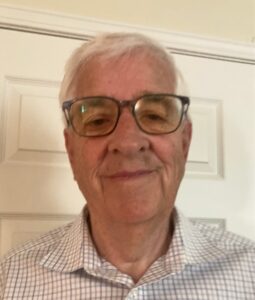A Q&A With John Addink
Author of “How I Lost $1,500,000 in Missions” Shares Insights

EDITOR’S NOTE: John Addink is a businessman, philanthropist, and the author of How I Lost $1,500,000 in Missions (And What I Learned From My Mistakes.) MinistryWatch’s Warren Cole Smith had this interview with him via zoom. It has been edited for brevity and clarity. 
Warren Cole Smith: What do you think is the most effective way to fund missions efforts today?
John Addink: I approach things this way: I have a goal to achieve. I can go several ways to get to that goal. What’s the most effective way?
If I go one way, of sending Americans to make disciples, that’s going to cost me a whole lot more than if I equip nationals, to help in their church planting efforts. The difference can be hundreds of thousands of dollars per missionary.
That’s why I look at opportunity costs, because it’s not just a matter of doing things more cheaply. Not a matter of spending less money, but of using the same money and producing a greater return.
This has been a 38-year journey for us. Of going from being on a missions committee, deciding which Americans to send to looking at work in Mexico and India and discovering what really works now. We started out with evangelism and then we went to plant churches. But we discovered more and more evidence that the missionary efforts of the past meant there were Christians all around the world. So let’s build on what they’ve done the in-country Christians. And so basically it comes back down to nationals training national church planners.
WCS: One of the things that you say pretty early in your book is that what gets measured gets done. You talk about the importance of measuring the right things. You say, for example, that we might measure how many Bibles we print and send to a country. But we don’t go that list mile. The Bibles sit in a warehouse. Or we measure the number of people who attend mass rallies and hear the Gospel, but now how many mature disciples are planting churches and evangelizing their neighbors. We’re measure the wrong things.
JA: We looked for multiplying disciples, so we only support about eight or 10 groups. We want verification some of the big numbers we often hear. About 170,000 people die every day without Christ. How do we reach them most effectively? We look for disciple-making ministries, and we look for verification.
So, for example, of the ministries we support, and particularly the ones we make the bigger donations to, we ask questions like: can you find the churches they claim they planted five years later? Can you find the disciples and are they multiplying and are the churches multiplying?
WCS: You devote some time in your book about short-term mission trips.
JA: We take trips to verify what’s going on, but on one trip you can’t really tell what’s going on because you could support an orphanage and they could put orphanage in there just for your trip. So we use consultants, and take multiple trips.
I learned early on, reading Brian Fikkert’s book [When Helping Hurts], how we can hurt people quickly with short-term trips.
WCS: So one of the other things you write about is this notion of sustainability and dependency, that the long-term goal is to produce mature disciples and to simultaneously decrease their dependence upon American or Western support.
JA: Yes. Jared Nelms of Timothy Initiative often talks about this challenge. Once you give them monthly stipends, how do you get them off from that?
So we support the national trainers rather than provide stipends to individual church planters.
WCS: You mentioned Jared Nelms and the Timothy Initiative, and I’ve interviewed Jared in the past for the MinistryWatch podcast. They’re doing good and interesting work. Are there others that are doing this right.
JA: There are groups like Operation Agape, that’s almost totally nationally led.
WCS: I want to ask you a little more about the idea of verification and due diligence. One of the things that you stress pretty strongly in the book is that you need to do due diligence on an organization before you give to them. Do you have any advice for donors about how to conduct due diligence, how to make sure that the nationals they’re giving to are telling the truth?
JA: You can start by looking at their audits and other publicly available information. What did Reagan say? Trust would verify. We’ve paid for studies from groups such as Excellence in Giving and Calvin Edwards [organizations that do consulting around charity and philanthropy].
WCS: John, I imagine that a lot of our readers will not be able to hire consulting firms. They are giving hundreds or perhaps thousands of dollars a year, not hundreds of thousands or millions. Got any advice for those in that category?
JA: Go to our website, Return Mandate. We’ve done some of that research and we have ministries listed there that we support.
I think you got to look hard at the difference between evangelism and making disciples. Lots of organizations have great tools. I think of The Jesus Film, or The Proclaimer Audio Bible. Great tools. The Bible’s a great tool. But unless you are training pastors to make disciples, unless you are multiplying disciples, I think you’re hurting, or at least not helping.
Also, most of those we support, we support for just a year or two. We don’t want to create dependency.



